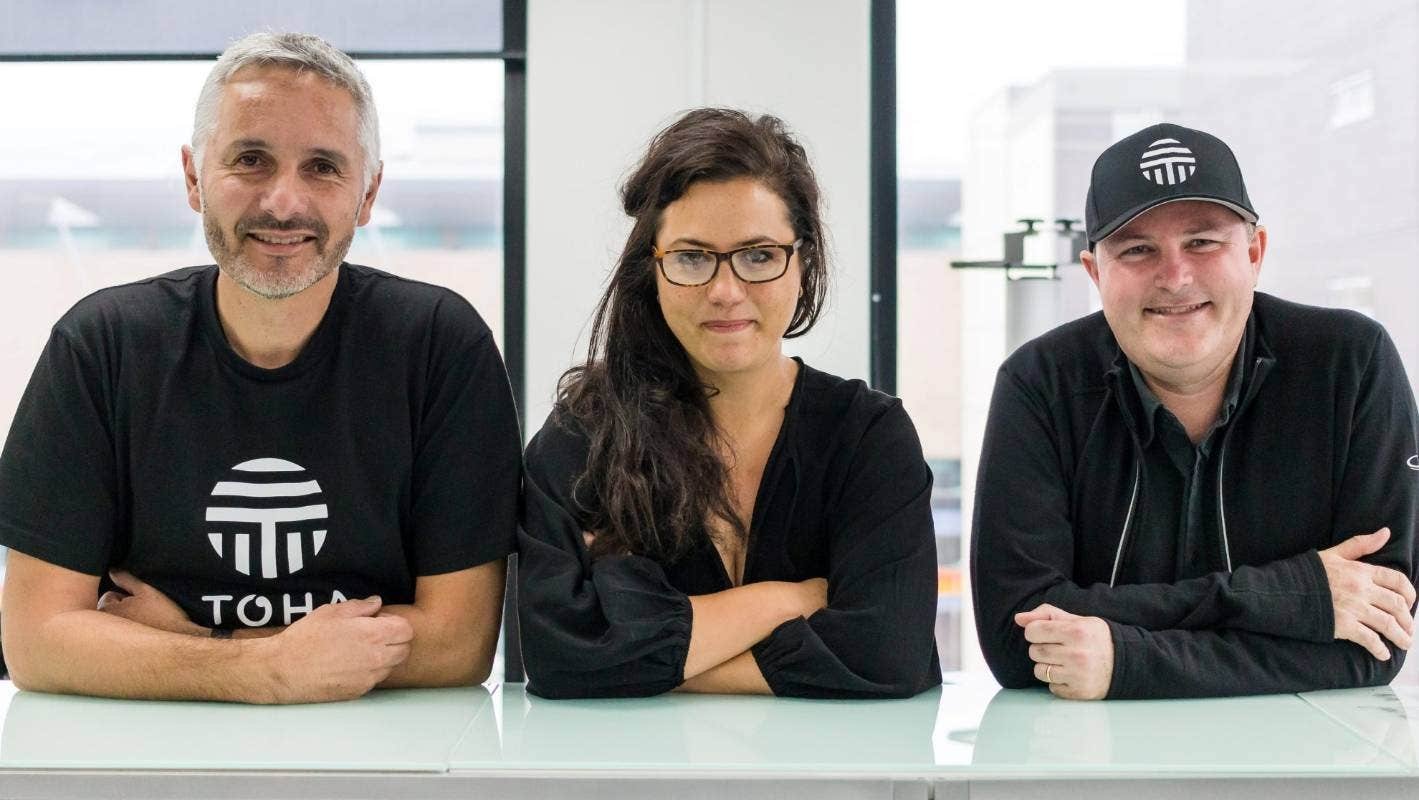Enabling prosperity through regeneration
We all have a role to play in the regeneration of our planet.
That is the belief firmly held by Mike Taitoko and Nathalie Whitaker, who are leading the way to find new environmental finance solutions for Aotearoa New Zealand. They are the co-founders of Toha, a digital platform designed to channel funding and support towards projects that address environmental and climate challenges.
Toha co-founders, EHF Fellows Mike Taitoko, Nathalie Whitaker, along with co-founder Shaun Hendy.
In the last year the Toha whānau has grown. Originally starting out as a single venture, Toha has expanded into The Toha Network, bringing together like-minded ventures around the collective goal of enabling economic prosperity through regeneration, starting in Aotearoa NZ.
Mike and Nathalie believe that Aotearoa NZ’s ability to build a low-emission food system is critical to that very prosperity. Which is why Toha has been identifying barriers within the current funding, supply chain, and export models that impede Aotearoa NZ’s ability to progress, as well as researching global and local climate solutions.
As an example, Toha is advocating for a shift from monocropping to integrated farming with livestock, natives, and horticulture. They want a sustainable ecosystem that prioritises local food access, introduces blended capital funding, and enables farmers' transition to regenerative practices.
Empowering farmers to adopt new ways of farming sustainably was a message that Mike - who grew up milking cows - shared at the 2035 Oceania Summit in October 2022, where he was part of a panel discussion on regenerative agriculture solutions. Mike notes that transforming the system so that it focuses on building ‘a network committed to change’ and fostering local regenerative food systems, is what’s needed to move things forward.
Moving things forward - quickly - was certainly Nathalie’s goal when she set up East Coast Exchange in the wake of Cyclone Gabrielle. Nathalie, who founded Givealittle, knew that the recovery would cost millions, but the contribution of many in the community could easily be overlooked or not valued appropriately. So she set up East Coast Exchange as a public record of the work that allows people to earn ‘contribution points’ and exchange them for funding.
Nathalie says, “People on the ground are already doing the mahi to adapt and respond to climate change, so it makes sense to recognise their contribution and convert that into something they get economic value from too.”
Six months following its establishment, the East Coast Exchange had a total community contribution value of more than 1,500,000. This means that those who helped with the emergency response from the clean up to giving kai (food) and equipment, through to the recovery of the Tairāwhiti area’s biodiversity, like replanting trees, can have their contributions - big and small - properly valued.
For more about the work of Toha, East Coast Exchange and the other ventures in the Toha network including NZ Climate Innovation, which is an impact investment marketplace designed to accelerate climate action and environmental innovation in Aotearoa NZ; and Calm the Farm, which helps Kiwi farmers to transition to regenerative agriculture management and supports them to earn income from environmental outcomes, visit www.toha.network

